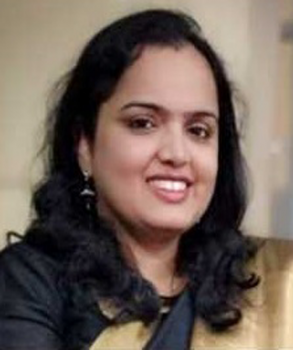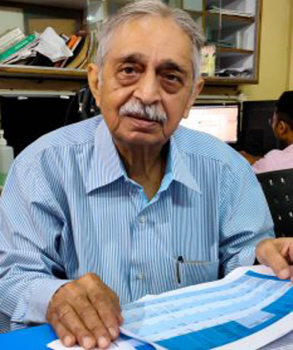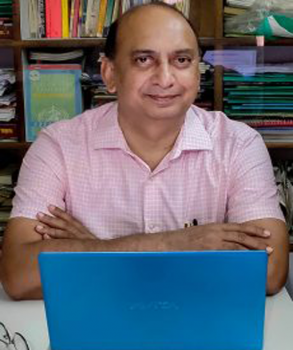- Home
- About Us+
- Specialities+
- Anaesthesiology / एनेस्थिसियोलॉजी
- Artificial Limb Centre/ कृत्रिम अंग केंद्र
- Cardiology/कार्डियोलोजी
- Cardiothoracic & Vascular Surgery/ कार्डियोथॉरैसिक व वैस्क्युलर सर्जरी
- Community Health / सामुदायिक स्वास्थ्य विभाग
- Critical Care/क्रिटिकल केयर
- Dental & Faciomaxillary Surgery/ दंत चिकित्सा व फ़ेसीयोमैक्सीलरी सर्जरी
- Dermatology/चर्म रोग विभाग
- Emergency Department / आपातकालीन
- Endocrinology/ एंडोक़्राईनोलोजी
- ENT & Head & Neck Surgery/ ईएनटी व हेड व नेक सर्जरी
- Family Medicine/ फैमिली मेडिसिन
- Gastroenterology/ गैस्ट्रोएंटरोलॉजी
- Internal Medicine/ इंटर्नल मेडिसिन
- Nephrology/ नेफ़्रोलोजी
- Neurology/ न्यूरोलॉजी
- Neurosurgery ( Division of Surgery )/ न्यूरोसर्जरी
- Nutrition & Dietetics / न्यूट्रिशन व डाइटेटिक्स
- Obstetrics & Gynaecology/ प्रसूति और स्त्री रोग
- Ophthalmology/नेत्र विज्ञान
- Orthopaedics/ हड्डी विभाग
- Paediatrics Surgery ( Division of Surgery )/ बाल चिकित्सा सर्जरी
- Paediatrics/ बाल चिकित्सा
- Physiotherapy / फ़िज़ीओथेरपी
- Psychiatry/ मनोचिकित्सा विज्ञान
- Radiology/रेडियोलॉजी
- Reconstructive & Cosmetic Surgery / प्लास्टिक सर्जरी
- Reproductive Medicine Unit/ रिप्रोडक्टिव मेडिसिन
- Respiratory Medicine/ रेस्पिरेटरी मेडिसिन
- Rheumatology / रूमेटोलजी
- Surgery/ शल्य चिकित्सा
- Urology/ यूरोलॉजी
- For Patients+
- Academics +
- OPD Timing+
- Vacancy
- Contact Us
- Patient Web Portal
Community Health / सामुदायिक स्वास्थ्य विभाग
Introduction
It was the time period after the ‘Emergency’ when the homeless and underprivileged of the society were relocated from central part of Delhi to outskirts of city. This was to take care of the health needs of the poorest of the poor, the government invited hospitals to open primary care units to which St. Stephen’s Hospital in 1981 was one of the few who responded. Thus the Community Health Department of St. Stephen’s Hospital (CHD-SSH) came into existence in Sunder Nagri resettlement and slum.
It is located about 16 kms away from the main hospital in a slum and resettlement colony in North East Delhi one of the most disadvantaged areas in the national capital. In this area there are pockets where two people cannot walk together in the streets with open sewers.
CHD-SSH believes in the WHO definition of health: “Health is a state of complete physical, mental and social well-being and not merely absence of disease or infirmity”.
Our Community
Sunder Nagri is situated in the north east of Delhi. It is one of the largest resettlement colonies of the 1975-1976 Clean Delhi Drive by the Government of India. The present population is around 58000. This large community is mainly accommodated in 18 blocks spread in an area of 700 meters to 1000 meters length wise. The numbers living in each house ranges from 5-8 members. Around 60-70% own their homes but 30-40% live in basic rental accommodation or in Jhuggis (makeshift houses). The majority of the community are low wage earners such as: factory workers, Labours, security guards, clerks, shopkeepers (of small business), taxi drivers, small auto drivers, mechanics, weavers, tailors and vegetable venders (who operate from road-side-carts). There are also a considerable number who are the lowest paid and most vulnerable such as peddle-rickshaw drivers and street-waste collectors (Rag-pickers). Most of the Sunder Nagri area has basic sanitation, water supply, and electricity service but standards vary accordingly to the type of accommodation.
Activities:
We provide comprehensive outpatient care (OPD) with very well established and effective referral system. All the services come at no cost for the beneficiaries.
|
OPDs |
Days |
|
General OPD |
Monday - Saturday |
|
Non-Communicable Diseases (Hypertension & Diabetes) |
Tuesday |
|
Child and Adolescent Friendly Clinic (Malnourished children) |
Wednesday |
|
Antenatal Clinic |
Thursday |
|
Psychiatry Clinic |
2nd & 4th Mondays every month |
OPD timing:
Monday – Friday: 9 am – 12.45 pm, 2 pm – 3.45 pm
Saturday: 9 am – 12.45 pm
We take care of physical, mental and social health of the community through various units:
Integrated Health Unit (IHU):
Door to door visits, Family health records, Maternal & Child Health, Adolescent Health, Non-communicable diseases, Mental illness – through mobilizing patients to various clinics and health education.
Child to Child Education (CCE):
Children with good educational calibre are oriented & empowered as child volunteers to educate younger children. Extra-curricular activities and exposure visits as well as career counselling workshops are held regularly.
Day Care Centre for Children (Creche):
Unlike other creche, the children (2-6 years of age) here are selected belonging to the most vulnerable families in the community. They are provided with nutritional food, education through play-way method, hygiene training. Thus, preparing them for school admission.
Centre for Social and Health Communication
This is aimed providing effective health communication to the community through Nukkad-natak, Audio messages, YouTube videos, Virtual rallies and Short flims. All the works from script writing to editing and production are done in-house.
Social Work Unit
This unit focuses on the socio-cultural aspect of health with emphasis on women empowerment through capacity building and income generation. Ghar Bananewali Mahilayen Workshop and Home Care and Domestic Help trainings are organised at regular basis. It also provides field work opportunities for Social Work students from various universities.
DOTS
Under National Tuberculosis Elimination Programme (NTEP) of the government, this unit serves tuberculosis patients coming from a large section of Sunder Nagri. The patients are closely followed up for treatment outcome and counselling.
Recreation Centre for Senior Citizens (Prem Chhaya)
This unit provides a daytime centre for the registered senior citizens members from Sudner Nagri, a place to sit and take part in various recreation activities. Nutritious lunch is also served to them.
Urban Horticulture
We consider that good human health is closely linked to the wellbeing of our mother earth. For nearly a decade, this unit has developed and maintained terrace and yard garden with all sorts of plants- flowering, kitchen, medicinal, ornamental. We also hold community tree plantation and adoption activities regularly.
IT Unit gives essential software support for HMIS and other technical support in our day to day works
HMIS (Health Management Information System)
The department has a software unit in place where everything from registration, administration is computerised. The medical records unit uses a ‘Health Watch software’ where the family records are stored based on NSSO reporting format. The administration office has a well-organised and marked cluster map of the community. The family records also contain member details and their basic health profile i.e if they are suffering from any malnutrition, infectious or a NCD disease.
Computerised recording system are also maintained for laboratory as well as OPD registration. Though these records are not interconnected and most of the diagnosis and prescription records are kept on patient specific health cards , which the patients also use when they are referred for continuity of care. Computerised reports exist for community programmes and over all administrative purposes with a dedicated room with computers.
Our Current Partners
- Smile Foundation
- SPYM
- NTEP- Delhi State
- Patient’s Welfare Society, St. Stephen’s Hospital
- Miracle Foundation
- Delhi Pharmaceutical Sciences and Research University
- Aseem’s Library
Meet the Consultants



